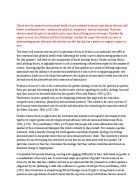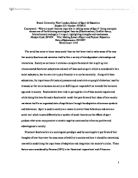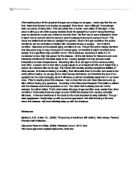It is possible that parents behaving, reacting and engaging differently to their child based on gender is a manifestation of society’s aim to control and shape perceptions of gender. Parents early on are driven by the fear that their children will not be accepted and that they themselves could experience judgement by not producing a child who conforms to a gender stereotype (Perry and Bussey, 1984, p.282). Boy’s behaviour is already being filtered through a lens of right or wrong based on social pressures and expectations. Research shows that the rejection in boys of attributes that are deemed feminine influences their choices regarding peer groups, sports, career, relationship with friends, family and intimate partners (McCann, 2006, p.228; and McCann, Minichiello and Plummer, 2009, p.201).
Western society’s feminization of homosexuality and the rejection of the feminine within masculinity draw attention to the heterosexuality of discourses on sexuality and the power it has to influence the lives of men (Connell, 2012, p10; and McCann et al, 2009, p.202). Whilst there are multiple definitions of masculinity, homosexuality, according to Connell (2012, p.5) is seen as the most dishonoured form of masculinity within western culture while McCann (2009, p.203) refers to the same as being seen as “failed” masculinity. The extent to which heterosexual forms of masculinity are valued and measured is shown on the macro level in sporting codes, education, institutions, military, religion, media and the government.
Labelling theory acknowledges the consequences of applying disempowering labels to the shaping of gender identity. Society’s successful application of homosexuality as a stigma in direct contrast to desired masculinity has ramifications for the health and wellbeing of men who show signs of ‘femininity’ and that could be deemed as ‘gay’. They are ostracised or bullied at school (McCann, Plummer, Minichiello, 2010, p.506), overlooked within the masculinised culture of institutions (Connell, 2006, p.238) and targets for homophobic violence (McCann et al, 2009, p.209).
Interestingly the nineteenth century saw an absence of distinct labels regarding sexuality and gender (Rotundo, 1993, p.76). As a result the intimate bonds that developed between middle class men of that era were socially accepted within even the most conservative groups. The practise of sharing a bed with another male through childhood to early adulthood was common and widely accepted. Physical and verbal expressions of affection between men flowed freely without fear of retribution or reference to a lack of masculinity (Rotundo, 1993, p.85). These male relationships were seen as a trial run for marriage and supported the development of confidence regarding the opposite sex (ibid). These behaviours allowed for deep and trusting relationships in youth between men because society had not yet assigned them any labels by which to control them.
The role of the media in the twentieth century in supporting hegemonic masculinity by portraying it against a backdrop of heterosexuality is significant (McCann et al, 2010, p506). The view that behaviours which stray from society’s heterosexual view of being a man are ‘deviant’ result in the labelling of homosexuality as the ‘other’ and signifies their part in assigning gender roles and hierarchies. This supports the view that mainstream culture will always label that which is different as ‘deviant’ in order to reaffirm its power.
McCann (2006, p.225) highlights the role of sports in emulating what is socially acceptable masculinity as a means of controlling boy into sporting icons. Connell (2012, p.8) addresses this important link between sexuality as society’s means of control. This is seen not only in sporting institutions but supported at macro level through institutions. The theory of a power elite, as developed by Wright Mills (1957) captures this essence of a connected network of business, government, military and media that disseminates roles and maintaining positions within its hierarchy through support from each other (Homles et al, 2007, p.586).
Australia has seen in the past thirty years a major detachment of socially prescribed gender qualities and sex (Holmes et al, 2007, p.3). Though there have been significant changes, gender issues are still being associated with only women. Connell (2002, p.43) puts forward the importance of examining men’s gender practises in order to better understand the limitations for men within the gender order. This picture of men’s gender issues draws attention to the placing of men within society. The suggestion that men’s issues are of less importance than those of women is of significance to discussions on the health development of men.
It is not only men that do not conform to society’s view of masculinity that experience gender related stress. Research has shown that masculine gender role stress (MGRS) manifests within men who are intensely loyal to fulfilling their masculine identity when faced with situations that challenge it (Copenhaver, Lash and Eisler, 2000, p.405). The impact of MGRS can manifest as drug abuse, intimate physical abuse towards a partner, physical and psychological problems (ibid). Furthermore research into MGRS highlighted the influence hegemonic masculinity has in contributing to men’s lack of willingness to show their vulnerability and seek help for health related issues (Copenhaver et al, 2000, p.405). In support of this view further studies into cancer and men posit similar findings on the link between gender role socialisation and men’s ability to seek help and cope psychologically with cancer diagnosis (Nicholas, 2000, p27).
Hegemonic masculinity is a dominant force shaping Australian society and is the basis by which other masculinities are compared (Connell, 2012, p.6; and McCann, 2006, p.225). The constant need from men to prove and defend masculinity in the eyes of society can result in toxic displays of hegemonic masculinity expressed as rape, violence, homophobia, criminality and discrimination (Connell, 2012, p.6). Interestingly Connell and Messerschmmidt (2005, p.838) describe hegemonic masculinity as the expression of “fantasies, ideals and desires” whilst not resembling the authentic life of any man. If the model for manhood is an unreachable, moralistic construction that changes constantly this represents significant issues for the health and wellbeing of any developing man and his family.
This paper has highlighted components of social learning theory that impact the healthy development of gender identity. The role of Gender schema theory in building the foundations for gender role socialisation was addressed along with the negative impacts of applying Labelling theory to gender issues. Hegemonic masculinity was shown to serve a purpose of control rather than support the individual and their families and exists in direct competition to homosexuality successfully labelling it ‘failed’ masculinity. The responsibility of the media and institutions were highlighted in maintaining cultural stereotypes and ideals.
In conclusion the healthy integration of instinctive masculinity for any man may lie within experiential learning that exits outside of society’s control and expectations of gender.
Berk, E. (5th ed) (2010) Development through the lifespan. Pearson; New York.
Connell, R. (2012) Studying men and masculinity. Resources for Feminist Research. Vol 29. pp.43-55
Connell, R. (2006) A Thousand Miles from Kind; Men, Masculinities and Modern Institutions. Journal of Mens Studies, Vol 16:3, pp.237-252
Connell, R. and Messerschmidt, J. (2005) Hegemonic Masculinity, Rethinking the Concept. Gender and Society; Vol 19:6
Copenhaver, M. Lash, S, and Eisler, R. (2000) Masculine Gender role stress, Anger and male intimate abusiveness. Implications for Men’s relationships. Sex Roles, Vol 42:5, p. 405-414
Holmes, D. Hughes, K. and Julian, R. (2007) Australian Sociology. A Changing Society. Pearson; Sydney.
Kimmel, M. (2004) Feminism and Masculinities. Oxford University Press; New York
McCann, P. (2006) Homophobia, Sport and the Group Socialisation of Australian Males. University of New England, pp. 225–238.
McCann, P. Plummer, D. and Minichiello, V. (2010) Being the butt of the joke: Homophobic humour, male identity and it connection to emotional and physical violence for me. Health Sociology Review. Vol 19:4, p 505 -521.
McCann, P. Minichiello, V and Plummer, D. (2009) Is Homophobia Inevitable? The Australian Sociological Association. Vol 45:2, p201-219.
Nicholas, D. (2000) Men, masculinity and Cancer; Risk factor behaviours, early detection, and psychosocial adaption. Journal of American College Health; 49; 1.pp.27 – 43.
Perrey, D and Bussey, K (1984) Social Development. Prentic Hall Inc; New Jersey.
Rotundo, E. (1993) American Manhood: Transformations In Masculinity From The Revolution To The Modern Era. Basic Books, New York, USA.








